Gay refugee made to feel ‘unwanted and unwelcome’ in the UK: ‘We don’t have anywhere else to go’
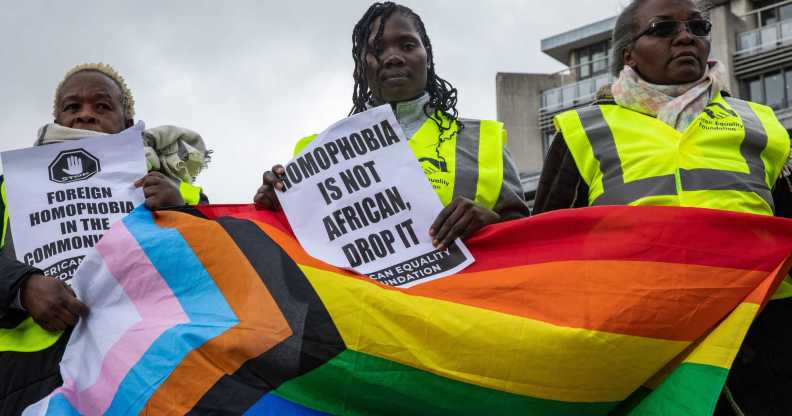
Ugandan LGBTQ+ activists have blasted a new bill that could see LGBTQ+ people sentenced to death. (Mark Kerrison/In Pictures via Getty Images)
When Mary fled Uganda because of homophobic persecution, she could never have imagined the hostility she would face as a refugee in the UK.
Mary had no choice but to leave Uganda. Her own mother had threatened to turn her into the police for being gay after her she found texts she had sent to her girlfriend.
“She didn’t want to be disgraced by a gay child,” Mary, whose name has been changed to protect her identity, tells PinkNews.
“Being gay is totally forbidden. If it had come out to everyone that I was gay, it would have been a big shame to my mother. I didn’t doubt her when she said she would turn me in.”
The alternative for Mary was to let her mother arrange for her to marry a friend’s son.
“If I was still there, I would be married by now. If I had refused to get married, I would be in jail or I would be dead. Those were my choices.”
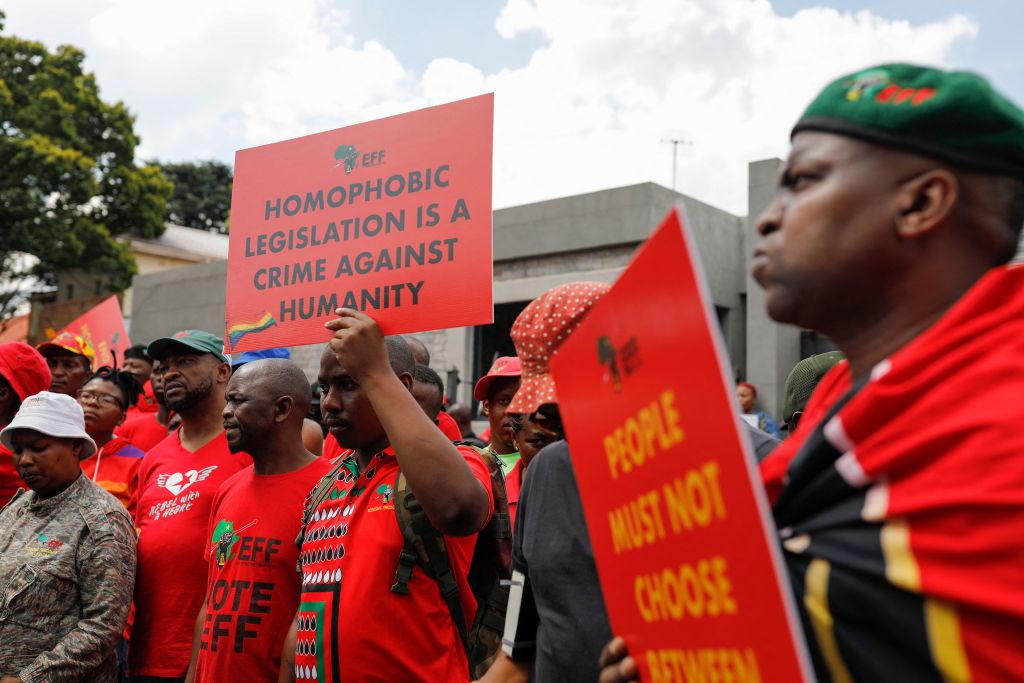
LGBTQ+ people are constantly under fire in Uganda. Politicians have repeatedly tried to strengthen its anti-gay laws to stamp out homosexuality in the country – in March, the parliament voted for a bill that would make simply being LGBTQ+ a crime punishable by imprisonment.
Outside of parliament, public attitudes to queer people are not kind, and violence is common.
Mary felt that she had no choice but to get out of Uganda. She travelled to the UK on a visa and went on to claim asylum.
But she’s been dismayed by rising anti-refugee sentiment in the UK, where debates are playing out in government – and among the public – about whether the country should be accepting those fleeing violence and persecution at all.
UK government has sought to stop asylum seekers
The Conservative government has repeatedly moved to clamp down on the number of people claiming asylum in the UK. Most recently, the Tories came under fire from human rights activists over its Illegal Migration Bill, which would see all adults who arrive to the UK via the Channel or in the back of a lorry detained for 28 days.
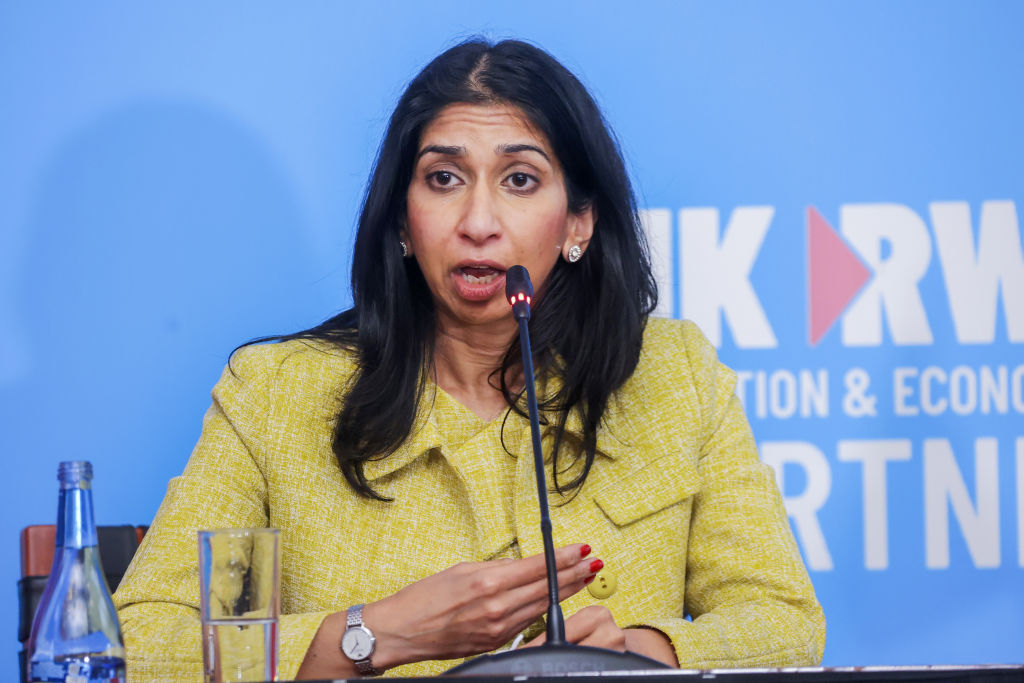
Those people would subsequently be sent back to their home country or to a third country like Rwanda, which the UK government has hatched a controversial scheme to outsource asylum seekers.
Meanwhile, communities across the UK have held meetings and staged demonstrations in a bid to stop people seeking asylum from finding refuge in their towns and villages.
“I think it’s a shame, really,” Mary says. “It’s very disheartening.
“To hear people say all the things they’re saying about migrants, it makes you feel like you can never find a place where you can just rest because you’ll be tossed and pushed around everywhere.
“You just find yourself not comfortable there because you’re not wanted there.”
She’s also incensed by some of the misinformation that’s circulated about migrants.
“They’re saying that migrants are taking up all the jobs or stealing people’s things or they’re causing all the crime in the country – that’s not true.
“I just feel very unwelcome. I just feel like they’re looking for an excuse because they don’t want us here, but at the end of the day we don’t have anywhere else to go.”
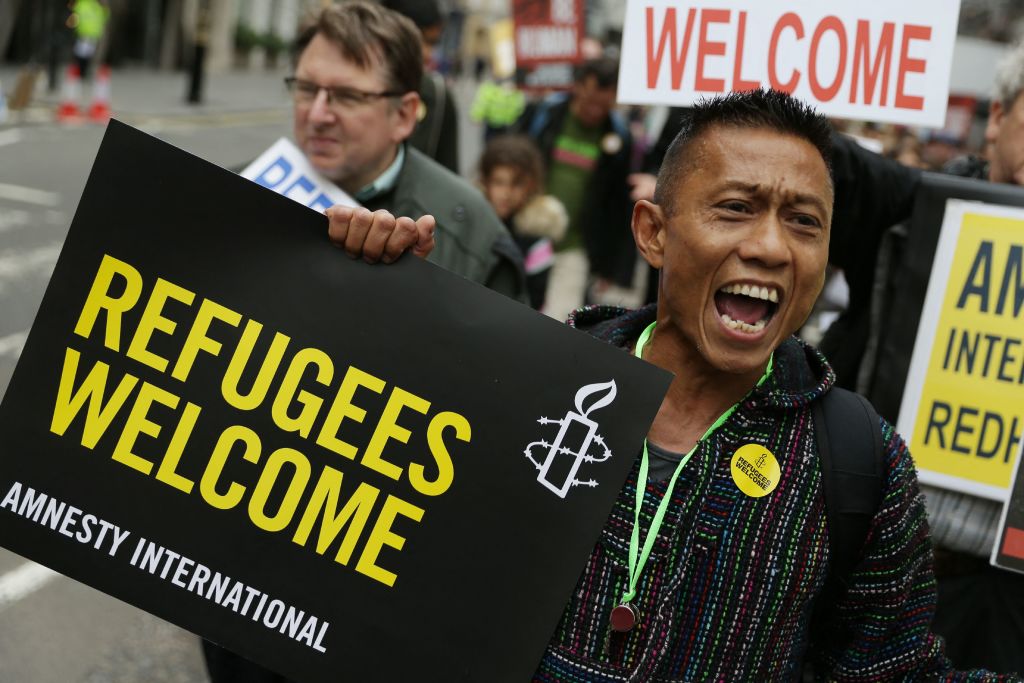
Her message to home secretary Suella Braverman is that she should have “a bit of compassion and humanity”.
“Remember, we are humans. They should look at us and see where we’re coming from and listen to our stories because it’s very hard to leave where you’re from to come and seek help.
“To come into a place where you’re expecting to get help and to receive the kind of treatment that people are receiving, it’s a bit unfair. It makes people question if they’re worthy of leaving.
“I think they should be merciful and treat people as people.”
Sebastian Rocca, CEO of LGBTQ+ asylum charity Micro Rainbow, says seeking asylum in a country like the UK is often the “only lifeline” for people like Mary.
“The dangerous ‘invasion’ rhetoric spouted by the government, amplified in newspapers and online, obscures the very real persecution that makes LGBTQI people leave their homes: they want to live, love, and just be who they are.
“Riots such as those seen in Knowsley and elsewhere, are extremely frightening. They pose a real risk of retraumatising the asylum seekers living there. Some of our beneficiaries are scared to leave their accommodation since the riots, are less trusting of people, and worried about being attacked.
“This is on top of the anxiety they feel at the possibility of being sent to Rwanda.”
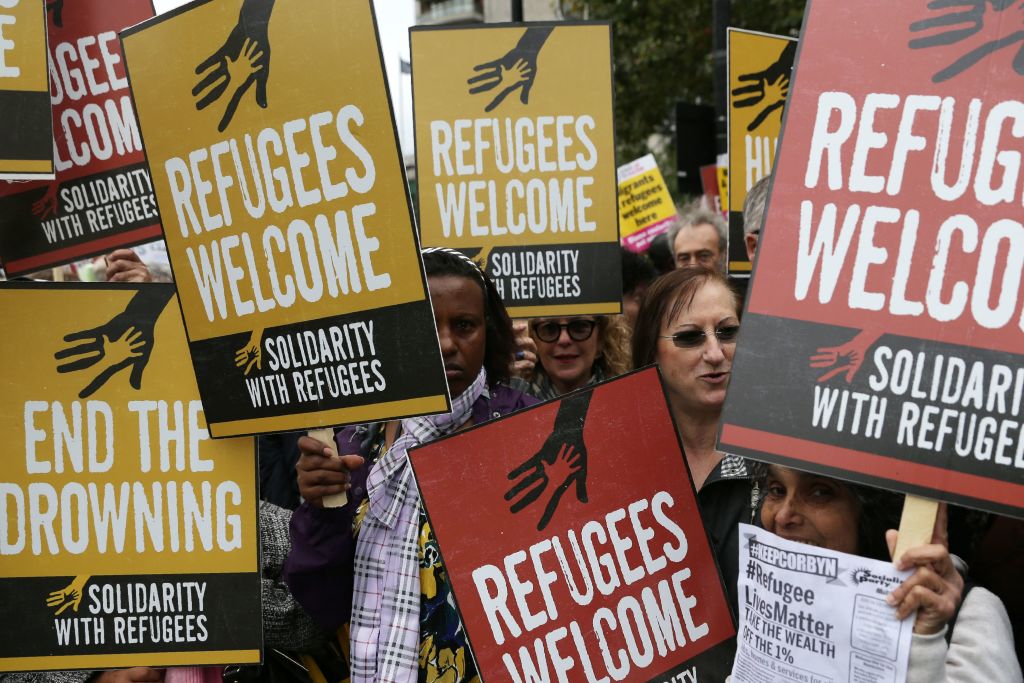
Rocca says the actions of a minority “do not represent the true views of British people”.
“In reality, British people are extremely compassionate and charitable and abhor the way asylum seekers are being treated by the government and press.
“Like us, they believe that the UK should be a safe haven for people fleeing persecution. The government needs to start treating refugees and asylum seekers with humanity and dignity.
“They could start not only by creating safe routes for people to reach safety in the UK but also by changing the narrative around asylum, by encouraging compassion over hate.
“At times we at Micro Rainbow feel disheartened and that it might be too late for this government to do the right thing. We hope to be proved wrong.”

